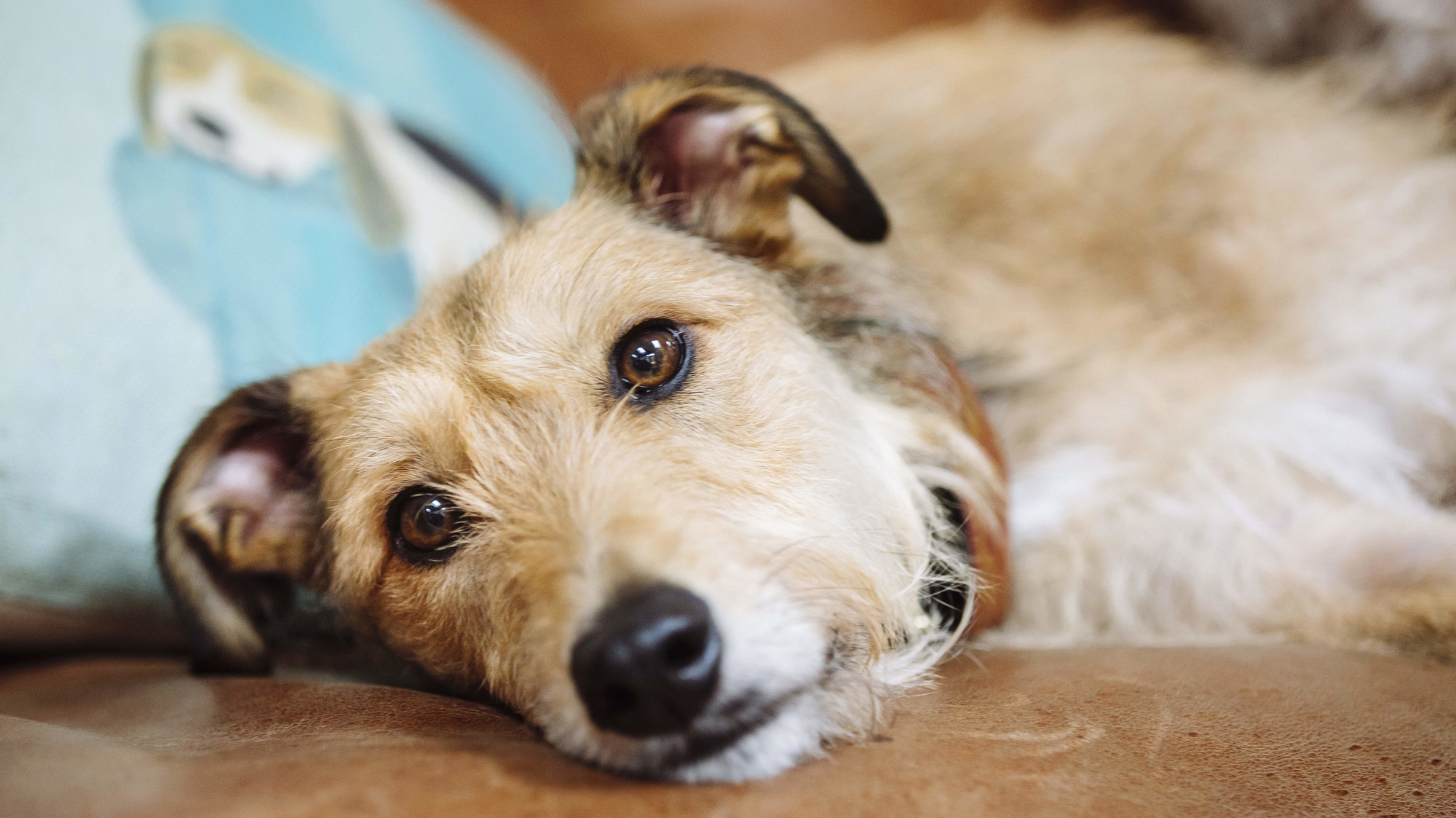
Why has my dog been sick?
- Dogs can vomit for a number of reasons and most of them are not serious or are easily treatable
- Consuming something that doesn’t agree with them is a common cause
- In rare cases, vomiting can indicate toxicity or a more serious health problem
- Always consult your vet in cases of repeated vomiting or if your puppy has any bouts of sickness
Why is my dog being sick?
Similar to humans, there are a number of reasons why dogs vomit. Causes can include:
- Eating something that doesn't agree with them (the most common cause)
- Eating too much
- Food allergy
- Bacterial or viral infections of the gut
- Inflammation of the stomach
- Consumption of something toxic
- Foreign body stuck
- Gastrointestinal worms
- Car or motion sickness
- Heatstroke
- Parvovirus
- Liver, kidney or pancreatic problems
Dogs are said to eat grass when they are feeling nauseous to make themselves sick and improve digestion, but more often than not they do this for no other reason than it tastes good.
What should I do if my dog vomits?
Repeated sickness, with or without other symptoms, requires immediate veterinary attention as this can – but not always – indicate a more serious problem. You should also go straight to the vet if you suspect that your dog has eaten something toxic, or if they are a puppy, as they are more susceptible to infections and can become dehydrated very quickly.
One-off vomiting in a pet that is otherwise looking and behaving normally, without any other symptoms, is not normally a cause for concern but you should follow the tips below to ensure a speedy recovery:
- If your pet is vomiting and unable to keep food down, you can try missing one meal, although still allow access to water. Then offer small amounts of white meat such as boiled chicken or fish with white rice. If there is no further vomiting, feed small amounts every two hours and then gradually mix in their usual food over 24 hours before giving them a normal meal. This diet should also be followed for diarrhoea though there is no need to skip a meal.
- Do not let your dog drink too much water as this can result in further vomiting. Give cooled, boiled water little and often.
If vomiting happens repeatedly or diarrhoea persists for more than two days, consult your vet. Even if your dog is no longer being sick, you should contact your vet if they are not eating or are depressed or lethargic.
My dog is constantly retching but not being sick, what does this mean?
If your pet appears otherwise healthy and is eating, then consider whether your pet could be coughing – kennel cough is common. If your pet appears uncomfortable, dull and is drooling constantly, contact your vet immediately as this could be a sign of bloat or something being stuck in the oesophagus (windpipe), both of which are veterinary emergencies.
My dog is vomiting bile, what should I do?
Dogs, like humans, will vomit bile, which looks like yellowy green foam, when their stomach is empty. The substance is produced by the liver and stored in the gallbladder. Some dogs vomit bile regularly for no apparent reason and it is rarely a cause for concern, but contact your vet if this becomes excessive.
What other symptoms should I look out for if my dog is being sick?
You should seek your vet’s advice if your dog’s sickness is accompanied by:
- Diarrhoea or constipation
- Bloating
- Lethargy
- Increased thirst or urination
- Blood in vomit or stools
- Panting
- Seizures
- Weight loss
Repeated sickness without any of these symptoms will also need veterinary attention.
Is there anything I can do to prevent my dog being sick?
Not all sickness can be prevented but ensuring that your dog sticks to the right diet, free of any human titbits or leftovers, which can cause serious problems such as pancreatitis (inflamed digestive gland), will keep their stomach in the best health. Make sure you keep any toxic substances such as chewing gum well out of reach and ensure that your garden does not contain any poisonous or irritant plants.
Changing to food different from the usual diet can also cause stomach upsets. It’s best to make diet changes gradually. Take at least three days and start by adding small amounts of the new diet to the current one.
Try to prevent your dog from scavenging by keeping your rubbish secure and, if necessary, by using a muzzle when your dog is in the park. Bones should never be given. Bowel irritation from chewed up bone fragments can cause gastrointestinal upsets and blockages.
How will my dog’s sickness be treated by a vet?
This will very much depend on the cause. Antibiotics are not usually necessary but antacids and drugs to reduce nausea may be given. Other medication may be needed for different problems or further investigative tests required.






